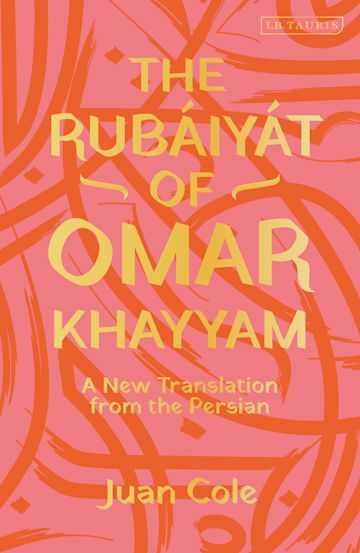January 1, 2024
In
the quatrains attributed to the medieval Iranian astronomer Omar Khayyam, the
Rubáiyát, the renewal that comes with New Year is an important theme. Since the
Iranian New Year is held on the spring solstice (typically March 21), it is
associated with the rebirth of greenery. This year I’m sharing some of my
translations of poems attributed to Khayyam beyond those collected in the 1460
compilation of Mahmud Yerbudaki, which I translated and published at IB Tauris
in 2020. These are from various medieval manuscripts, some of them excerpted
and published by E. H. Whinfield in 1882.

Rubáiyát
of Omar Khayyam
When
New Year’s rainclouds wash the tulip’s face,
get
up and to red wine your will entrust.
Since
this green lawn that now delights your eye
Tomorrow
will be growing from your dust.
(In
Mohammad ibn Bahr Jājarmī, Mo’nes al-Ahrār, dated 1340, in E. Denison Ross,
“’Omar Khayyam,” Bulletin of the School of Oriental Studies 4, 3 (1927), pp.
433-439.)
Now
that the bloom is on the rose of bliss,
Don’t
hesitate to raise a wine glass high.
Drink
up, for your determined foe is time:
You
won’t again come by a day like this.
Whinfield
71
Wine
server, rise and bring shame to my name.
The
old and young have often seen our like.
Musician,
my physician, sing a song,
then
grab a wine decanter: a chord strike!
“Kholāsat
al-ash`ār fi al-Robā`īyat,” Safīneh-‘e Tabrīz.
Into
the garden flew a drunken nightingale,
delighting
in the cup of wine that was its rose.
It
whispered with its mystic voice into my ear:
“Grab
hold, for life is gone when once it goes.
Whinfield
81
Tonight,
who brought you from behind the veil;
who
brought you, tipsy, to me, drawing near?
–to
one on fire because you had been gone–
one
like an arid wind; who brought you here?
Whinfield
2
The
dawn has broken: rise, you hopeless flirt,
and
gently – gently -— sip some wine and strum.
For
those who dwell here will not be here long.
Of
those who left, not one again will come.
–
Mo’nes al-Ahrar
What’s
being, then, if death is the reality?
What
is the road to our impossible desires?
No
layover will offer any benefit.
And
when the journey’s done, what kind of rest transpires?
Whinfield
88
Wine
is an essence that takes many forms:
It
animates all life and waters roots.
Do
not imagine that it ever dies.
Its
essence lives, if not its attributes.
Whinfield
75
Since
I translated the poetry into a contemporary idiom, I thought I’d try my hand at
a digital image that pays homage to the Bravo show, “The Shahs of Sunset,”
instead of the Victorian, pre-Raphaelite sort of painting that has typically
accompanied the The Rubaiyat in Western publishing.
These
poems are not in my translation of the Yerbudaki manuscript, which is available
as below:
Juan
Cole, The Rubáiyát of Omar Khayyam: A New Translation from the Persian (London:
IB Tauris/ Bloomsbury, 2020). Click here.
Reviews:
“’To
read Juan Cole’s deft, plain-spoken translation of the Rubáiyát
is
to find companionship, to rejoin a thousand-year human
conversation
about how to endure, enjoy, and find a fleeting beauty
in
everlastingly dire times. The lucid, cogent and mind-opening
Epilogue
is a kind of grace, a gift freely given, from one of our
most
astonishing and generous intellects.’”
–
Michael Chabon, Pulitzer Prize winner and author of Moonglow (2017)
“’Omar
Khayyam is a Persian treasure and Juan Cole’s new
translation
brings him anew to Western audiences who
for
centuries have been both delighted and educated by this
medieval
sage! Reading The Rubáiyát is a thrill – you feel the
echoes
of the 12th century seamlessly into our 21st, as this is
a
holy book of wisdom and magic. In another perilous era for
Iranians,
it’s wonderful to see this enchanting volume make
its
way through the world yet again!’”
–
Porochista Khakpour, novelist, essayist and author of Brown Album (2020)
No comments:
Post a Comment